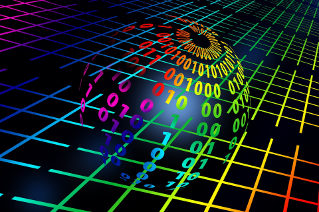Opportunity
Free Software
Free Harvard and MIT Courses
History
Stolen Legacy
The History of Herodotus
Library of History by Diodorus Siculus
King James Bible
Technology
Linux Manpages

Linux
Linux was originally developed as a free operating system for personal computers but is currently used for more computer platforms than any other operating system.
Free software is primarily a matter of liberty, not price: users, individually or collectively, are free to do whatever they want with it - this includes the freedom ... to sell it
Our goal is to increase awareness of open source and to assist everyone in leveraging its economic and social value. Learn how to use open source to create opportunity and wealth. Linux
Linux is a computer operating system (OS) that is developed, assembled and distributed under the model of free and open-source software.
The computer operating system is the computer program called the kernel. The kernel executes and manages the execution of other software programs, interfaces with the physical machine and manages I/O (input/output) requests from software.
How is Linux Used
Linux was originally developed as a free operating system for personal computers based on the Intel x86 architecture, but has since been ported to more computer hardware platforms than any other operating system.
The Android system that is used for smartphones is built on top of the Linux kernel and has the largest installed base of all general-purpose operating systems.
Linux is also the leading operating system on servers and large scale systems such as mainframe computers and supercomputers. Linux also works on some devices whose operating system is implemented in firmware. Examples of this include routers, video games, watches, television controllers, etc.
"The development of Linux is one of the most prominent examples of free and open-source software collaboration. The underlying source code may be used, modified, distributed-commercially or non-commercially by anyone under licenses such as the GNU General Public License."
What is a Distribution
The Linux kernel is packaged with libraries, supporting utilities, applications and other programs to form a distribution. The programs that make up a distribution may be focused on providing either a desktop or server environment. They may also focus on some specific aspect or capabilities for either desktop or servers.
Anyone can create a distribution or a collection of Linux software for any use. Some of the most widely used Linux distributions are described below:
Debian
Debian GNU/Linux is a distribution that supports many hardware platforms. Debian and distributions based on it use the .deb package format and the dpkg package manager and its frontends. Debian is known for being well-tested and bug-free. Many consider Debian as a distro for experienced users. The version release cycle is slow with stable releases coming out every one to three years. Debian provides more than a pure OS: it comes with over 43000 packages, precompiled software bundled up in a nice format for easy installation on your machine. Debian
Ubuntu
Ubuntu is a distribution based on Debian, designed to have regular releases, a consistent user experience and commercial support on both desktop and server. It has a predictable, six-month release schedule and is also notable for its ease of use and its inclusion of a migration assistant for Windows users. It is also know for its support of new technology. Ubuntu
Fedora
Fedora is the community supported distribution based on Red Hat Linux. Fedora is particularly strong on enterprise features and has a standard a six-month release schedule. It uses the RPM format for software distribution and updates. Fedora
Mint
Linux Mint is an Ubuntu-based distro. It differs from Ubuntu with custom themes, different applications, graphical tools for enhanced usability, such as mintDesktop for configuring the desktop environment, mintInstall for easier software installation and mintMenu for easier navigation. Mint is one of the most user friendly distributions. Mint
Puppy
Puppy Linux is a compact distro that's ideal for older hardware and situations where computing resources are minimal. The live-CD typically being 85MB, yet there is a complete set of GUI applications. The whole OS is small enough to run directly from system RAM. The system is extremely responsive and applications start quickly and respond instantly. Puppy
Arch
Arch Linux is a simple, lightweight and flexible Linux. A good deal of the configuration has to be done by the user. It is generally consider as a distribution for experts. Arch
More..
There are more than 100 current Linux distributions. Check distrowatch if you are interested in investigating more.
GNU Software gives computer users freedom and control in their use of their computers and computing devices. Everyone has the rights to freely run the software, copy and distribute it, study it, and modify it. GNU software grants these rights in its license. GNU software can be found at the GNU software mirrors.
GNU Savannah serves as a collaborative software development management system for free Software projects. This following links are to the source code mirrors for these projects. Savannah contains GNU software and non-gnu software.
Downloading GNU Software - GNU software is available on ftp.gnu.org under the directory /gnu. There are also many mirrors of this directory and some may give faster response. A list of mirrors can be found at https://www.gnu.org/prep/ftp.html.
GNU Alpha Releases - When you release a greatly changed new major version of a program, you might want to do so as a pretest. The server alpha.gnu.org for pretests and prerelease versions. https://www.gnu.org/prep/ftp.html.
GNU Language Support - Mirror information is available in German, Portuguese or English. Up to date versions of source packages for GNU releases, alpha releases and Savannah non-gnu software can be found at https://mirrors.sarata.com/.
Sarata GNU Mirrors - Knowledge should be usable and accessible to all without restrictions and should not be treated as property. The source code for GNU software releases, alpha releases and Savannah non-gnu software can be found at https://mirrors.sarata.com/.
